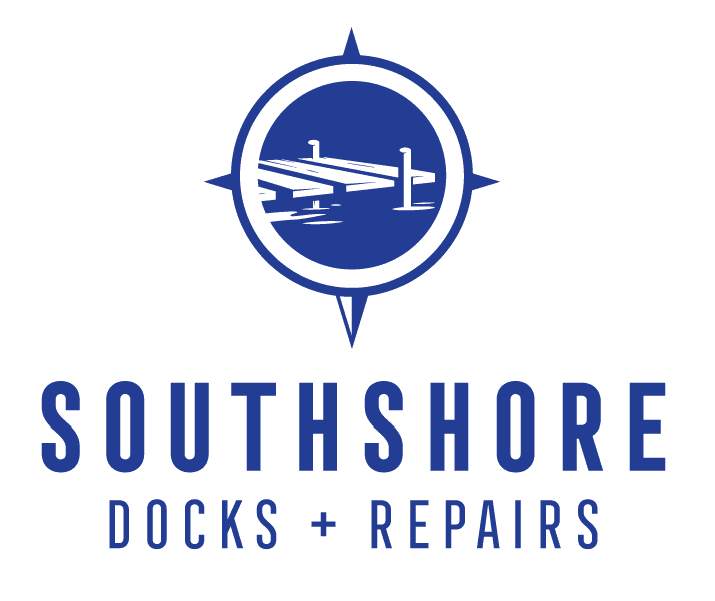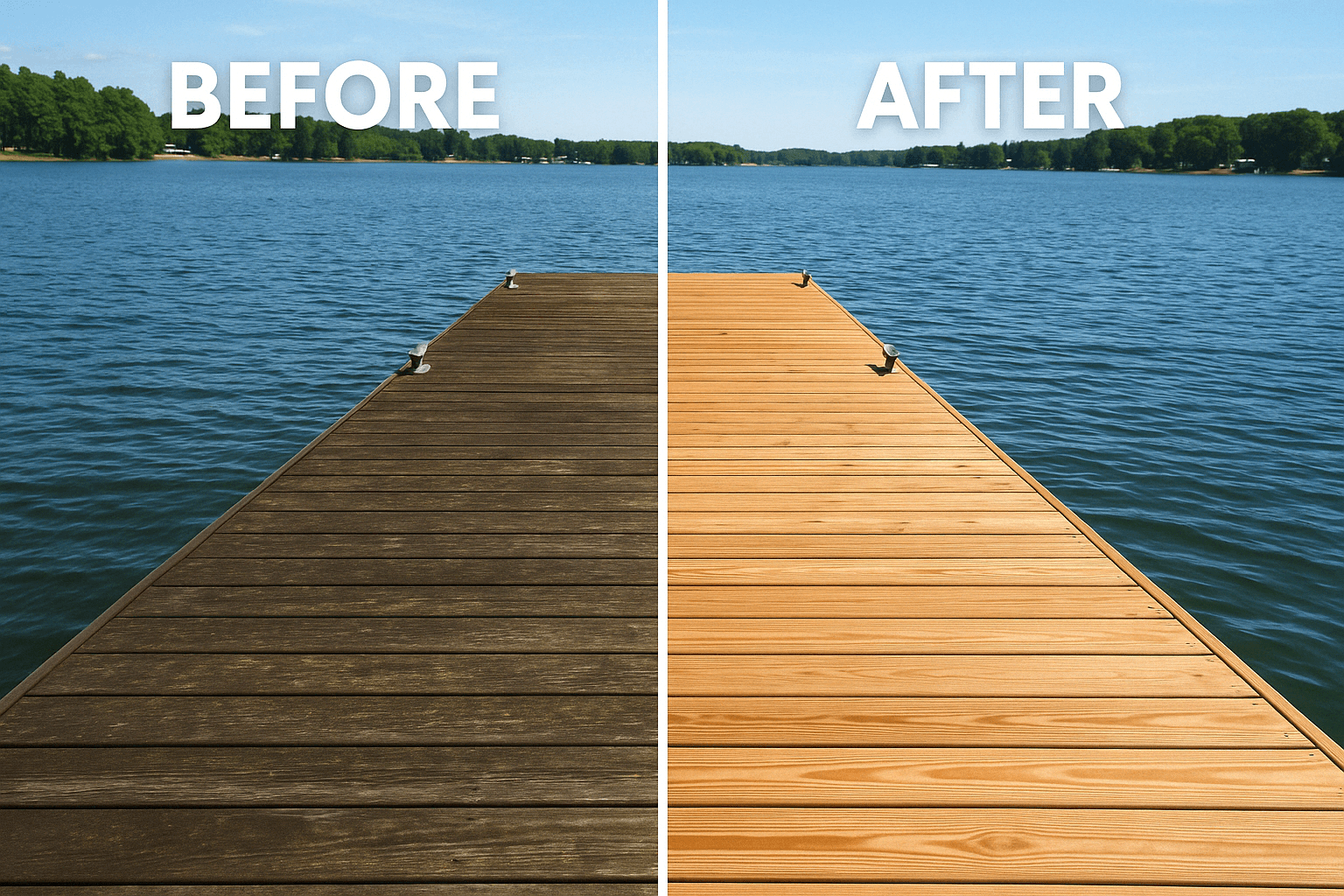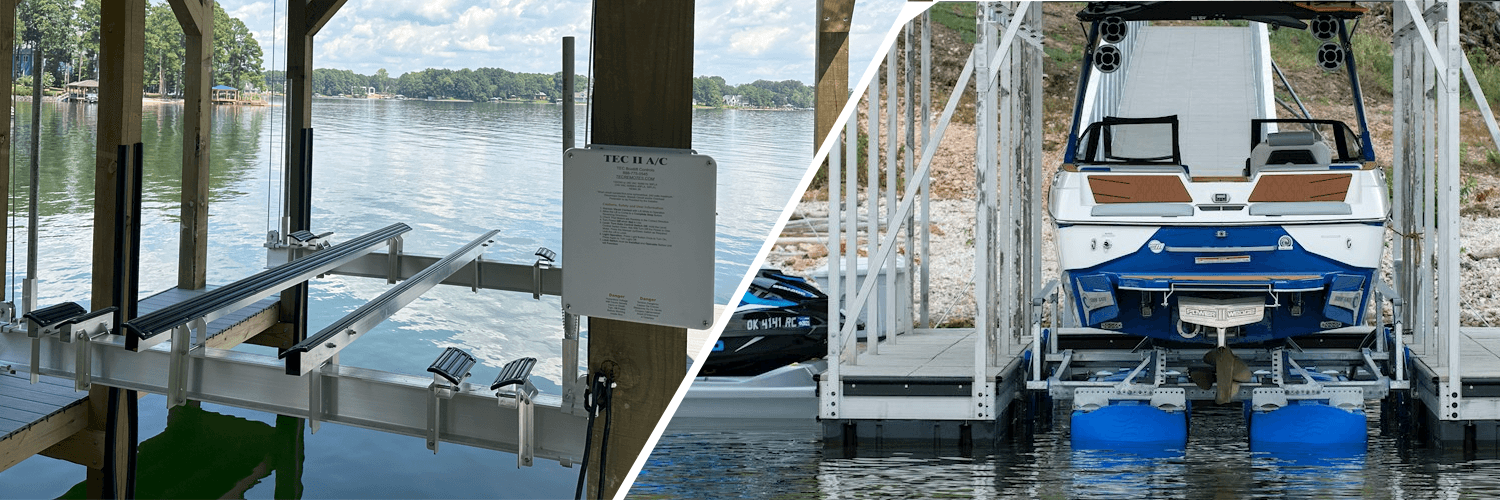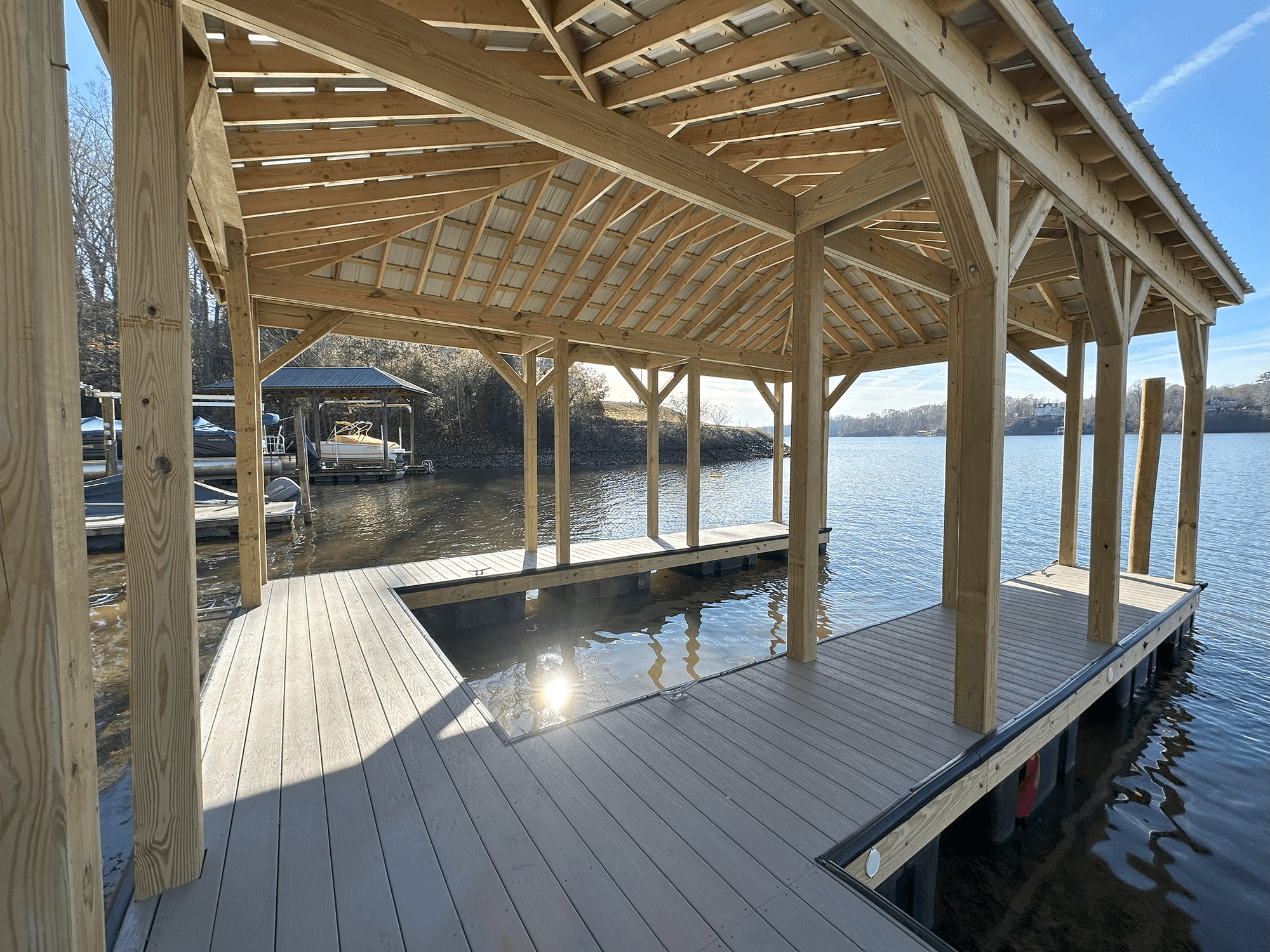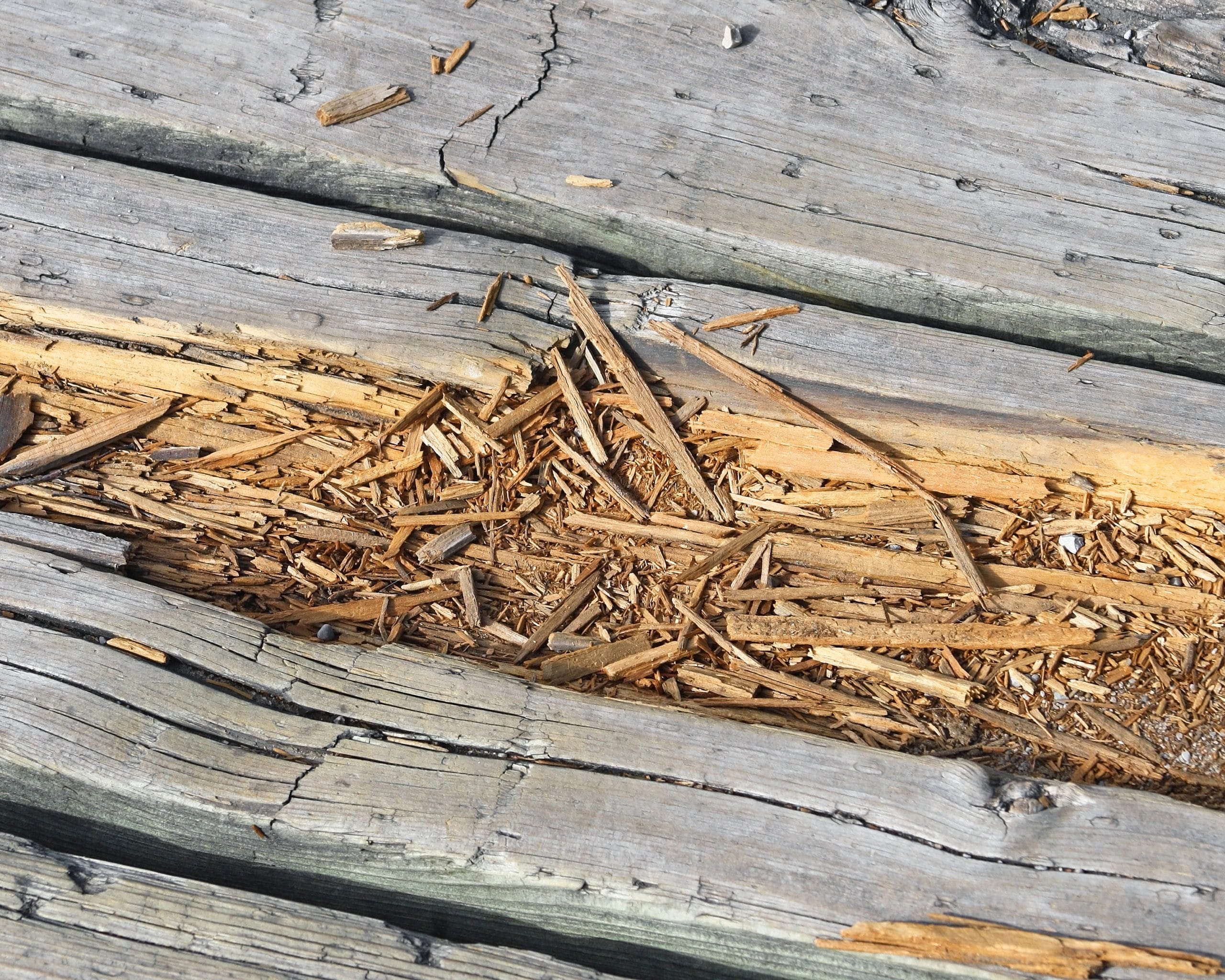The Importance of Choosing the Right Dock for Your Property
A well-designed dock is the centerpiece of any waterfront property. Whether you use your dock for boating, fishing, swimming, or simply enjoying the lake view, choosing the right type is essential. If you own property on Lake Norman, you’ve likely come across two primary options: floating docks and fixed (permanent) docks.
Each dock type has unique benefits and potential drawbacks, depending on factors like water depth, fluctuating water levels, maintenance concerns, and your intended use. This guide will help you determine whether a floating dock on Lake Norman or a permanent dock on Lake Norman is the right investment for your property.
Understanding Dock Types: Floating vs. Fixed Docks
Before diving into their advantages and disadvantages, let’s define the key characteristics of floating and fixed docks.
What is a Floating Dock?
A floating dock is built on top of buoyant materials such as foam-filled plastic floats or airtight drums. These docks are not anchored to the lakebed but are instead secured with pilings, cables, or anchoring systems that allow the structure to move with the water.
Common Uses for Floating Docks on Lake Norman:
✔ Ideal for areas with fluctuating water levels
✔ Great for temporary or seasonal use
✔ Preferred in deeper waters where pilings would be costly
What is a Fixed (Permanent) Dock?
A fixed dock is built on pilings or concrete footings that are driven into the lakebed. These docks remain in place regardless of water level changes and are designed to be a long-term, sturdy structure.
Common Uses for Permanent Docks on Lake Norman:
✔ Best for areas with stable water levels
✔ Preferred for heavy-duty use and larger boat storage
✔ Ideal for property owners seeking a more permanent structure
Pros and Cons of Floating Docks on Lake Norman
✅ Pros of Floating Docks:
1. Adjusts to Changing Water Levels
Lake Norman experiences periodic fluctuations in water levels due to weather conditions and dam operations. Floating docks automatically rise and fall with the water level, making them ideal for this environment.
2. Easier and More Affordable Installation
Since floating docks do not require deep pilings, they are generally easier and less expensive to install compared to permanent docks.
3. Versatile and Expandable
Floating docks can be modified, expanded, or reconfigured with relative ease. If you need additional sections, they can be added without extensive construction.
4. Less Impact on the Lakebed
For eco-conscious homeowners, floating docks create minimal disruption to the natural habitat beneath the water.
5. Better for Deep Water Areas
If your waterfront property has a steep drop-off, a floating dock is often the best solution, as installing deep pilings for a permanent dock can be expensive and challenging.
❌ Cons of Floating Docks:
1. Less Stability in Rough Waters
Since floating docks move with the water, they can feel less stable underfoot, particularly during storms or when boat wakes create choppy conditions.
2. Higher Maintenance Needs
Floating docks are more prone to wear and tear because they are constantly moving. Components such as anchoring cables and flotation devices need regular inspection and maintenance.
3. Not Ideal for High Traffic Areas
If your property is located in a busy part of Lake Norman with frequent boat traffic, a floating dock may experience excessive movement, making it uncomfortable for activities like relaxing or entertaining.
4. Limited Load Capacity
Floating docks are not as strong as permanent docks. If you plan to install heavy accessories such as boat lifts, large seating areas, or covered structures, a permanent dock may be a better choice.
Pros and Cons of Permanent Docks on Lake Norman
✅ Pros of Fixed (Permanent) Docks:
1. Maximum Stability
A permanent dock is rock-solid, offering a stable surface that won’t shift with water movement. This makes it ideal for entertaining, fishing, or lounging.
2. Longer Lifespan
With proper maintenance, a fixed dock can last for decades. Permanent docks are often built with durable materials like composite decking and treated wood, which provide excellent longevity.
3. Higher Load Capacity
Because permanent docks are supported by pilings, they can accommodate larger boats, heavy furniture, and even covered structures like gazebos or boat lifts.
4. Less Ongoing Maintenance
Compared to floating docks, permanent docks require less frequent repairs. You won’t have to worry about flotation devices failing or frequent anchoring adjustments.
5. Increases Property Value
A well-constructed permanent dock can add significant value to your home, making it a great investment for those looking to enhance their waterfront property.
❌ Cons of Permanent Docks:
1. More Expensive to Install
A permanent dock requires pilings to be driven into the lakebed, which means higher labor and material costs.
2. Vulnerable to Water Level Changes
Unlike floating docks that rise and fall with the water, permanent docks can become inaccessible if water levels drop too low.
3. Difficult to Modify or Expand
Once installed, a permanent dock is not easily changed. If you later decide you need additional space, expansion can be costly and require additional permitting.
4. Environmental Impact
Since fixed docks require pilings and possible dredging, they can have a greater impact on underwater ecosystems compared to floating docks.
Which Dock Type is Right for Your Property?
Choose a Floating Dock on Lake Norman if:
✔ You need a dock that adjusts to fluctuating water levels.
✔ The property has deep water where pilings would be difficult to install.
✔ Prefer a cost-effective, modular option that can be reconfigured.
✔ Primary use is for boating, swimming, or temporary docking rather than entertaining large groups.
Choose a Permanent Dock on Lake Norman if:
✔ Want a highly stable dock for entertaining, fishing, and seating.
✔ Have a larger boat or plan to install heavy accessories like a boat lift.
✔ The waterfront has consistent water levels, reducing the risk of dock inaccessibility.
✔ You are looking for a long-term investment that adds property value.
Let Us Help You Choose the Best Dock for Your Needs
Deciding between floating docks or permanent docks on Lake Norman depends on multiple factors, including water conditions, budget, and how you plan to use your dock.
At SouthShore Docks and Repairs, we specialize in custom dock design, installation, and maintenance. Whether you need a versatile floating dock or a long-lasting permanent dock, we have the expertise to help you choose the best solution for your waterfront property.
📞 Call us today to discuss your dock options and schedule a consultation! Let’s build the perfect dock for your lakefront lifestyle.
Continue Exploring!
Owning a dock on Lake Norman is a dream come true — but regular care is key to protecting that investment. Whether you're in Cornelius, Huntersville, Denver, or one of the beautiful towns surrounding Lake Norman, dock maintenance on Lake [...]
Owning a boat on Lake Norman means year-round adventure. But protecting your investment is just as important as enjoying the ride. That’s where a boat lift comes in.Boat lifts help prevent hull damage, reduce maintenance, and keep your vessel in [...]
Owning waterfront property on Lake Norman is a dream come true. Whether you use your dock for boating, fishing, entertaining, or relaxing by the water, a well-designed dock can enhance your experience and increase your property value. Choosing the right [...]
Lake Norman is a prime location for boating, fishing, and relaxing by the water. But before you launch your boat or host a lakeside gathering, it’s crucial to ensure your dock is in top condition. A damaged or unstable dock [...]
